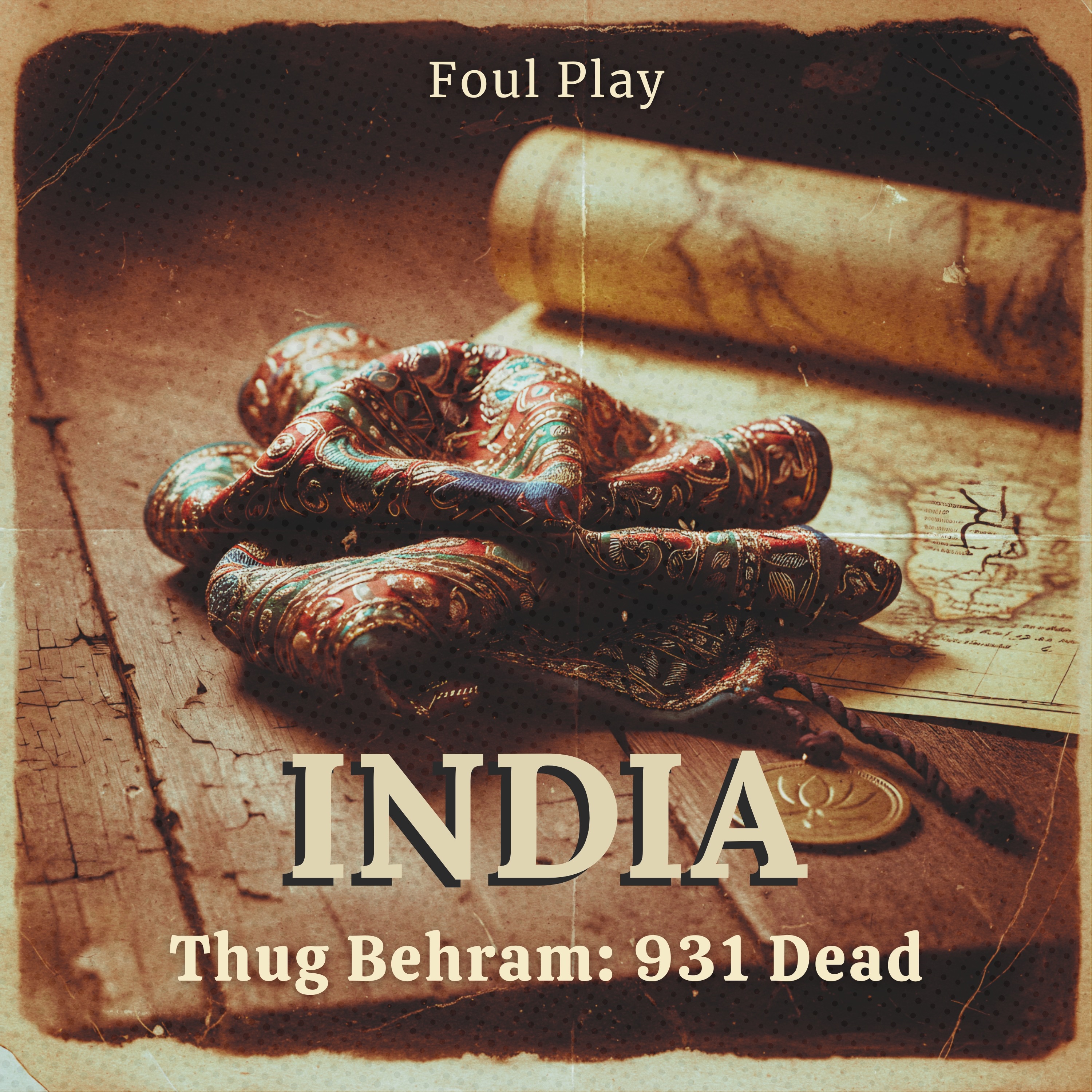Podcast Episode Details
Back to Podcast Episodes
India: Thug Behram and the Thuggee Stranglers
Season 36 Episode 5
In colonial India, travelers befriend strangers on the road, sharing meals and stories, unaware these companions will be.
Episode 5 of 15 | Season 36: Serial Killers in History
Thug Behram's 40-year reign of terror across colonial India reveals the most prolific serial killer ever documented, whose ritualistic methods would help shape modern criminal investigation.
For decades, travelers crossing India's dusty plains vanished without a trace. Merchants carrying goods between cities, pilgrims journeying to sacred sites, families relocating to new villages—all disappeared along the same well-worn trade routes. These weren't random robberies gone wrong. They were calculated murders carried out by the Thuggee cult, a secret brotherhood that moved invisibly through Indian society. Among these killers, none was more prolific than Thug Behram. Over forty years spanning the late 1700s through 1840, he personally strangled 125 victims and witnessed the deaths of hundreds more. The travelers he befriended never suspected the friendly companion sharing their campfire would become their executioner. Behram's victims came from all walks of colonial India's diverse population—traders transporting silk and spices, civil servants traveling between British outposts, farmers returning from market with their earnings. Each trusted their fellow travelers, never imagining the smiling faces around the evening fire belonged to trained killers who had perfected their craft over generations.
The Thuggee case represents one of the most significant developments in the history of criminal investigation. Thug Behram's eventual capture and confession in 1840 provided unprecedented insight into organized crime, leading directly to the creation of systematic investigation methods still used today. His case forced British colonial authorities to develop one of the world's first criminal intelligence units, led by William Henry Sleeman, who pioneered techniques like informant networks, detailed record-keeping, and pattern analysis. The investigation would ultimately dismantle a criminal organization that had operated for centuries, leading to the arrest of thousands of Thuggee members across India. The methods developed to catch Behram became the blueprint for modern law enforcement approaches to organized crime. His confessions also revealed the disturbing psychology of ritualistic killing, where murder was justified through religious devotion to the goddess Kali. The Criminal Tribes Act of 1871, though controversial, grew directly from lessons learned during the Thuggee investigations. Today, Behram remains the most prolific documented serial killer in history, his case a stark reminder of how belief systems can be twisted to justify systematic violence.
Born in the late 1700s near Jabalpur in central India, Thug Behram learned the art of murder as a child. The Thuggee tradition passed from father to son, and Behram's family had practiced the cult's deadly rituals for generations. Beginning around age ten, he studied the intricate system of hand signals, code words, and deception techniques that allowed Thuggee gangs to operate in plain sight. The cult's primary weapon was the rumāl—a ceremonial silk handkerchief with a heavy silver medallion sewn into one corner. This simple cloth became a lethal instrument in trained hands. When Behram gave the signal—often an innocuous phrase like "bring tobacco"—his gang struck with ruthless efficiency. The rumāl tightened around the victim's throat while accomplices pinned their arms and legs. Death came swiftly and silently. The Thuggee believed they performed sacred work for Kali, conducting elaborate rituals before and after each killing. Victims were buried face down to prevent their spirits from rising in anger, and offerings were made at hidden shrines along the trade routes.
As Behram ma
Published on 1 week, 5 days ago